30 Amazing Parenting Tips All Moms Should Know

Whether you work or stay home, have one kid or 10, parenting is an undeniably hard job. And many moms are the ones responsible for making the bulk of the decisions for their household, which is a lot of weight to bear. In fact, a 2016 study published in American Sociological Review suggests that mothers tend to be more stressed out and less happy than their male counterparts.
But it doesn’t have to be this way. In the interest of relieving some of the seemingly-insurmountable pressure moms find themselves facing, we’ve rounded up some amazing parenting tips—straight from experts and backed by science—that can help moms brave whatever kids throw at them.
1
Don’t go crazy trying to figure out why your baby is crying.

You’ll hear it from a million parents a million times over: “Babies only cry when they’re tired, hungry, sick, or need a new diaper.” But that’s 100 percent not true.
“Sure, kids will cry when they’re hungry, have a dirty diaper, or a pain,” says Gina Posner, MD, pediatrician at MemorialCare Orange Coast Medical Center in Fountain Valley, California. “But they’ll also cry because they’re not being held, or are too warm or not warm enough. And sometimes, they’re just crying and you don’t really figure out why. It’s not exactly what parents want to hear—they want a solution—but you might not ever exactly figure it out.”
When this happens, don’t beat yourself up—you’ll be able to determine at least the bulk of your child’s crying cues in time. And the ones you can’t nail down won’t come up all the time, anyway.
2
If they’re in a safe space, put them down and walk away for 10 minutes.

Even the most placid parents can get frustrated by a baby who won’t stop crying. If you’re feeling like you’re at the end of your rope, or are too exhausted to safely watch them, put your baby alone on their back in a safe sleep space—a crib, co-sleeper, or bassinet with a firm surface and no soft bedding or stuffed animals—and take a few minutes for yourself.
“If a baby’s crying and you’ve checked everything and you know they’re healthy, you can put them in a safe spot and leave them for 10 or 20 minutes,” says Posner. “If they’re in a safe area, they can cry and you can take a little breather for a few minutes. You don’t have to feel like you always have to be right there as long as you know they’re safe and healthy.”
3
Use your pediatrician’s emergency line.

Many new parents find themselves frantically searching for answers when they encounter a rash, unprecedented fussiness, or any other new and surprising symptom in their child. The good news? Most pediatricians have an after-hours emergency line that parents can call when they’re at a loss for what to do, but want to avoid a trip to the emergency room.
4
If you don’t want to breastfeed, don’t stress.
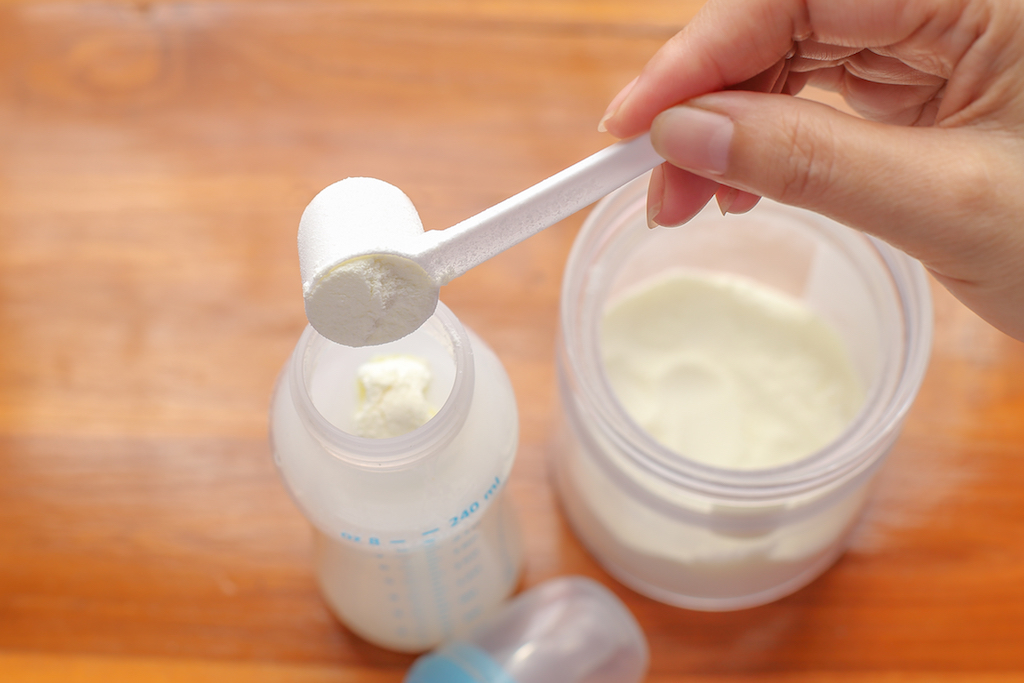
A 2017 meta-analysis published in the journal Pediatrics indicates that breastfeeding for at least two months can reduce a baby’s SIDS risk by up to 50 percent. But the cognitive benefits of breastfeeding may have been overstated.
According to a 2018 study published in PLOS Medicine, by the time kids hit 16, there’s no discernible difference between the ones who were breastfed versus the ones who were formula-fed in terms of neurocognitive function. So don’t beat yourself up if you can’t (or don’t want to) breastfeed. Just be sure you’re prepared for late-night trips to Target for formula!
5
When in doubt, nap it out.

Your kid is on hour three of an absolute meltdown and you’ve tried to ply them with snacks, books, and as many games of Candy Land as they can handle. So, what’s an exhausted parent to do? Put them in their bed or crib and try to get them to nap. “Kids who get an adequate amount of sleep behave better, have better personalities, and are generally happier,” says Posner.
But there’s one exception: Don’t do this after your child has bumped their head or fallen because if they have a head injury, going to sleep can be dangerous. Use that emergency pediatrician line if you have any questions or concerns.
6
But don’t freak out if they miss a nap or two, either.
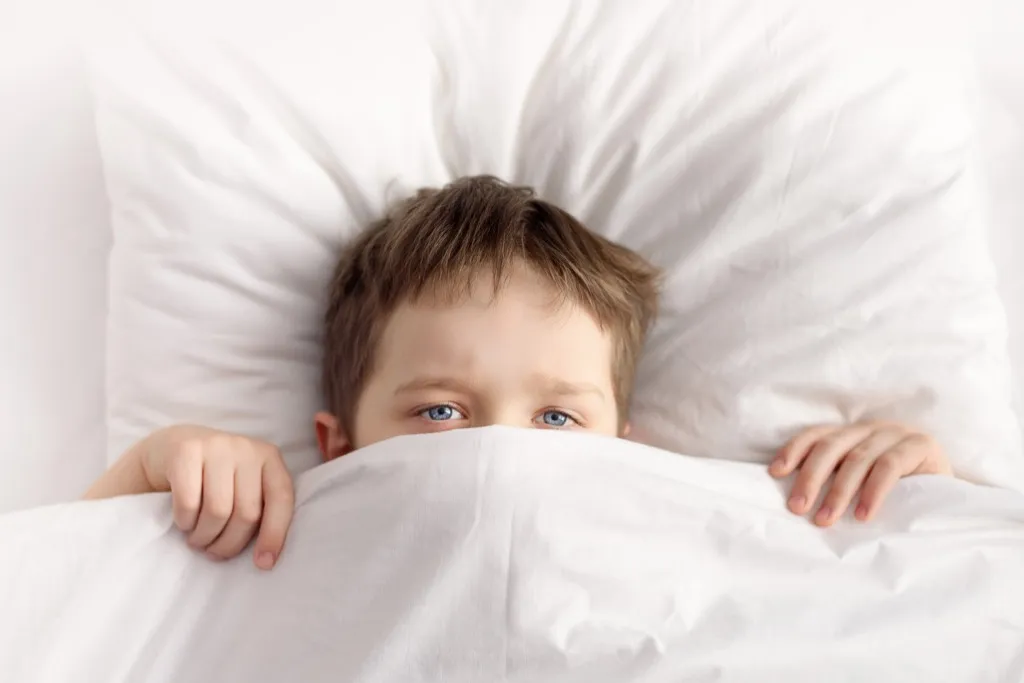
For some parents who have their kids’ sleep schedule down to a science, the thought of missing out on a nap is enough to send them into a downward spiral of anxiety and panic. But don’t worry: a skipped nap or two won’t actually have long-term consequences. “Over a couple of days, you’ll just have a crabby child,” says Posner. “Parents won’t be very happy if they deprive their kids of a couple of nights of sleep, but there are no real other repercussions.”
7
Keep your phone in your pocket when you’re putting your kids to bed.

Look, we love our kids. But singing “Twinkle, Twinkle” to your baby for the umpteenth time—or just sitting in their darkened room, handing them their pacifier ad nauseam—isn’t exactly exciting stuff. And pulling out your phone to keep yourself entertained may have the unintended effect of keeping your baby awake.
A 2011 study published in Neuro Endocrinology Letters revealed that blue light from devices reduces the concentrations of the sleep hormone (melatonin) in the blood, potentially shortening sleep duration and reducing its quality. Whenever possible, put the phone away when you’re trying to get your little one to sleep and you’ll probably find them drifting off a whole lot faster.
8
Don’t bathe your baby every day.

Sure, if your kid is covered in grime, it might be worth your while to make with the old soap-and-water routine. But in general, if your kid isn’t visibly dirty, a bath isn’t a daily necessity, especially if they’re not yet mobile.
“I usually tell [parents] to bathe them when they start getting smelly,” says Posner. “Little infants aren’t playing in the mud, but if they have a diaper explosion, stick them in the bath. Once a week is even fine. I wouldn’t bathe an infant every day, but if they really enjoy the bath and you want to give them one every other day, you can do that.”
9
Put outfits together for the whole week and save your sanity in the mornings.
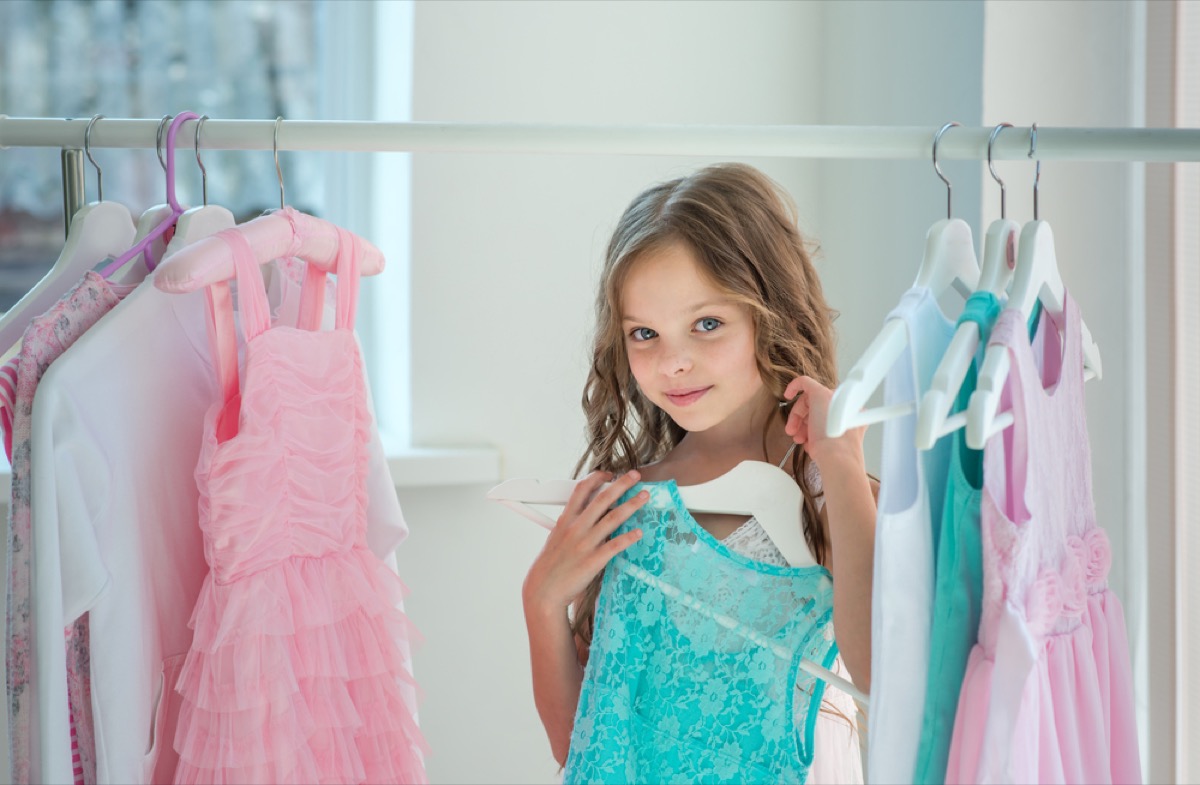
Bedtime may be a slog, but it’s often mornings that present bigger challenges for parents. Between brushing teeth, eating breakfast, and making sure everyone’s out the door on time, picking out a cute—or even merely clean—outfit for an overtired kid can seem impossible.
If you want to nip this problem in the bud, implement a Sunday night outfit planning session where you put your kids’ clothes—underwear, socks, and all—on labeled hangers for the week. Doing so will give them the agency they desire when it comes to choosing what they wear, but without the mad dash to find something that matches in the morning.
10
Invest in a white noise machine for your child’s room.
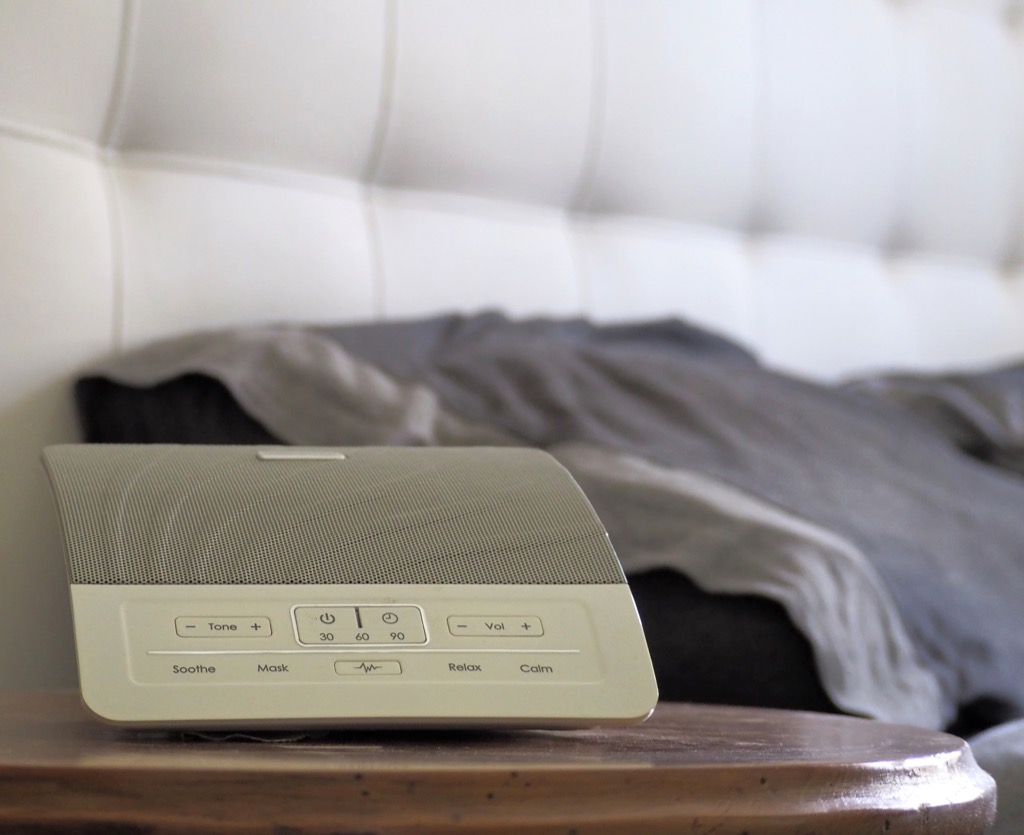
They’re healthy, dry, warm, fed, and in a sufficiently dark room, but there’s just one final piece of the puzzle missing when it comes to getting your kid to sleep: white noise. A 2016 study published in the Journal of Caring Sciences revealed that, among patients admitted to a hospital’s coronary care unit, those who used white noise machines reported significant improvements in sleep quality. And if it works in a hospital, it’ll definitely work at home.
11
Read to your kids every day.

Want to get your child talking and build their vocabulary? Read to them daily—and from a print book whenever possible. A 2019 study published in the journal Pediatrics shows that toddlers who were read to from print books had more verbalizations than those read to from a tablet or enhanced digital book (the latter also have that sleep-disrupting blue light that poses problems).
And since talkers can more effectively communicate their needs at a young age, those early reading habits might just save you and your kids frustration in the long run.
12
Buy blackout curtains for your baby’s nursery.

That fancy bassinet? You can probably do without it. That must-have teether? Nice, but not necessary. A set of blackout curtains? An absolute must. According to one 2010 study published in The Journal of Clinical Endocrinology & Metabolism, healthy individuals exposed to bright light before bed—like those rays sneaking into your kids’ rooms at 8 p.m. in the summer—slept approximately 90 minutes less than those exposed only to dim light before bedtime. So, if you want your kids to go to sleep and stay asleep (potentially even affording you some precious alone time), a dark room is a bright idea.
13
Use water-based baby wipes to clean up pretty much any mess.

While traditional baby wipes often contain alcohol, which isn’t an appropriate cleanser for everything, water-based ones without this drying ingredient can be used pretty much anywhere. Got a spill on your countertop? Get out the baby wipes. Spit-up in your hair? They’ve got it covered. Coffee spill in your car’s cup holder? Baby wipes to the rescue!
14
Be consistent with your rules.
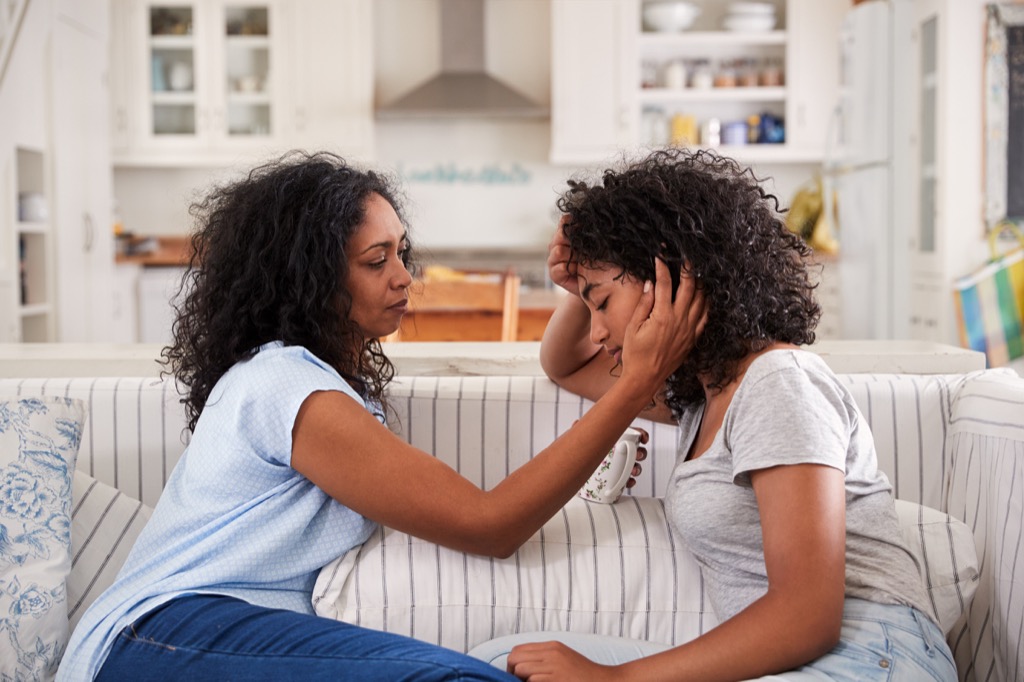
If you’re going to make a rule for your kids, make sure it’s one you plan on sticking to, because consistency is the key to maintaining a healthy relationship with your kids—and keeping tantrums at bay. In fact, according to a 2016 review of research published in the Journal of Child and Family Studies, consistent parenting is associated with lower rates of risky behavior, improved physical health, and lower rates of depression among older adolescents. Set your rules in stone, and your kid will be easier to parent in the long run.
15
Always have OTC medicine on-hand.

Even if you don’t need it at the moment of purchase, having a stash of children’s over-the-counter medication in your house can help alleviate a major middle-of-the-night freak out when your kids get sick. And since your kids’ health issues definitely won’t be sticking to a 9-to-5 schedule, it’s well worth paying a little more upfront to avoid a 10:00 p.m. trip to the nearest 24-hour pharmacy with a screaming kid.
16
But know that there’s not medicine for everything.

Not every health issue is something you can fix with a dose of ibuprofen and some rest—or even something your pediatrician can provide much help with.
“People like ‘If this, then that,’ scenarios, but kids are not like that. You try everything, and some kids still just scream bloody murder,” says Posner. “Parents get kids with viruses or colds and bring them in and say, ‘You have to do something to cure my child,’ but it’s often just something they have to wait out.”
17
And not every injury calls for a trip to the ER.

That bruise or rash may look terrifying to you, but most injuries and illnesses can be dealt with at a traditional appointment with your child’s pediatrician. “You really don’t need the ER for very much. The majority of things can be handled in a regular pediatric office,” says Posner.
So, what does merit a trip to the emergency room? “If they fell and lost consciousness, have a true documented fever for longer than six days, if they’re vomiting so much they can’t keep anything down and it’s been days, or if they’re having a really hard time breathing,” Posner says it’s time to go to the ER.
18
Teach gratitude early on.

While no kid waltzes out of the womb with a copy of Emily Post’s Etiquette tucked under their arm, enforcing those Ps and Qs now can do more than get them praised for their politesse.
According to a 2012 review of research published in Social Psychological and Personality Science, people who regularly practice gratitude express more empathy and less aggression than those who don’t. That could come in handy when dealing with tantrum-prone toddlers, for sure.
19
Teach consent early too, and later conversations about it will be much easier.

With consent being a major topic of discussion these days, many parents wonder how they can teach their kids to understand their own bodily autonomy—and that of others. Letting kids know that they can say no to tickling, a kiss from grandma, or a hug from their friend when they’re little makes it easier to continue that conversation when it becomes even more necessary in adolescence.
20
Eat dinner together to get to know your kids better—and keep them healthy.

“The dinner table holds a lot of secrets,” says therapist and life coach Dr. Jaime Kulaga, PhD. “If you want to know about your child’s day, you can find it all out at the dinner table. But if you are talking about work or on technology while eating, you will miss some crucial moments.”
And from a physical health perspective, those family dinners are pretty important, too. One 2014 study published in Nutrition Research and Practice revealed that kids who regularly ate dinner with their family were more frequent consumers of healthy foods, including fruits and vegetables.
21
Give your kids a label maker.

Your kid may never learn to love vacuuming the carpet or dusting your bookshelves, but you can get an otherwise cleaning-averse kid eager to organize by letting them use a label-maker. Typing and printing out labels that indicate where everything goes can give your kids a sense of ownership over their space and make it easier for them to put everything back where it belongs when they’re done playing, too.
And adding a little extra fun to those other cleaning tasks—like putting stickers on your broom, seeing who can clean up toys the fastest, or simply putting on their favorite music while you tidy—can make those chores a whole lot easier.
22
Never buy baby outfits that button up.

As a rule, children—babies in particular—don’t love having their arms, legs, and still-malleable skulls shoved into outfits. What they dislike even more, however, is being poked over and over by a parent trying to fasten their tiny outfit’s even tinier buttons. If you want to avoid a total meltdown—and leave the house on time—know that there’s a hierarchy when it comes to the mechanisms by which children’s clothing fastens: zippers, then snaps, and then, a million entries down the list, buttons.
23
When in doubt, redirect their behavior.
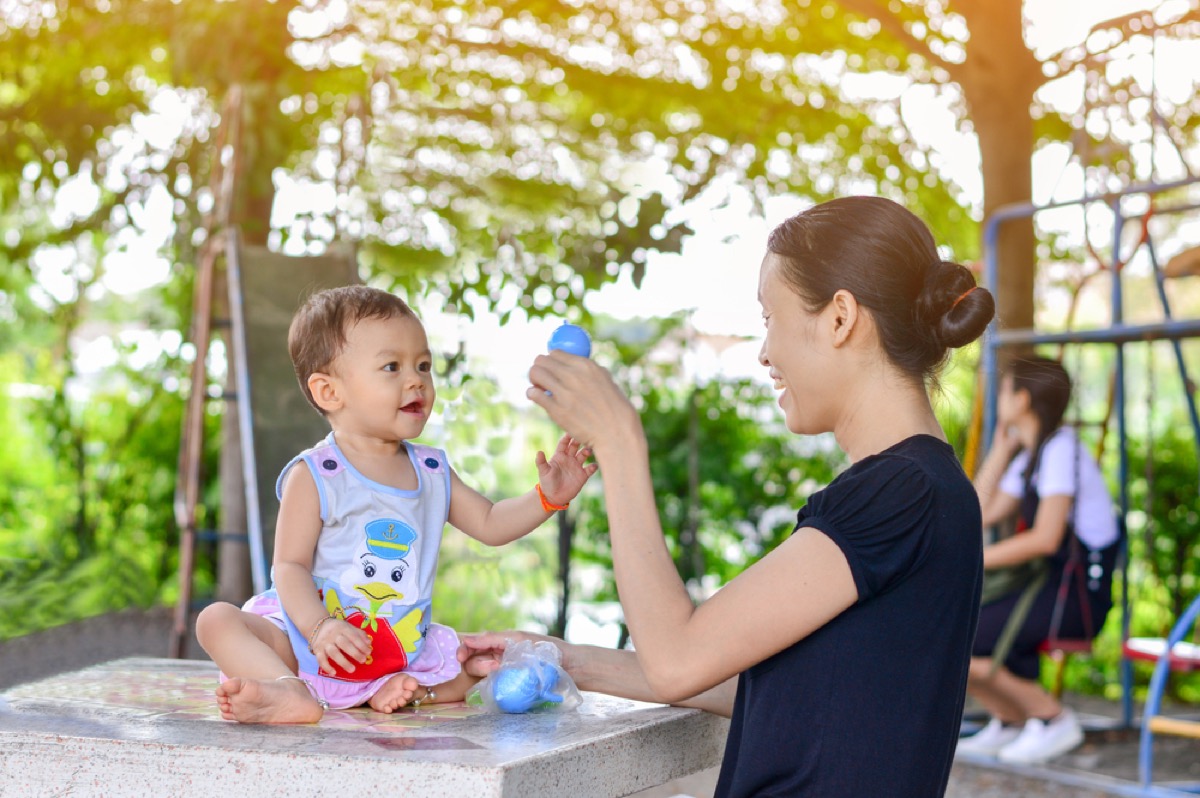
Whether your toddler is having a tantrum, hitting, or throwing things, redirecting can help you turn things around quickly. Rather than saying “no” to your child who’s been biting you, give them a teether to chew on instead; if they have been throwing a hard toy that could injure them or break something, give them a balloon to throw in its place.
24
Don’t freak out when your kid isn’t growing how you expected them to.
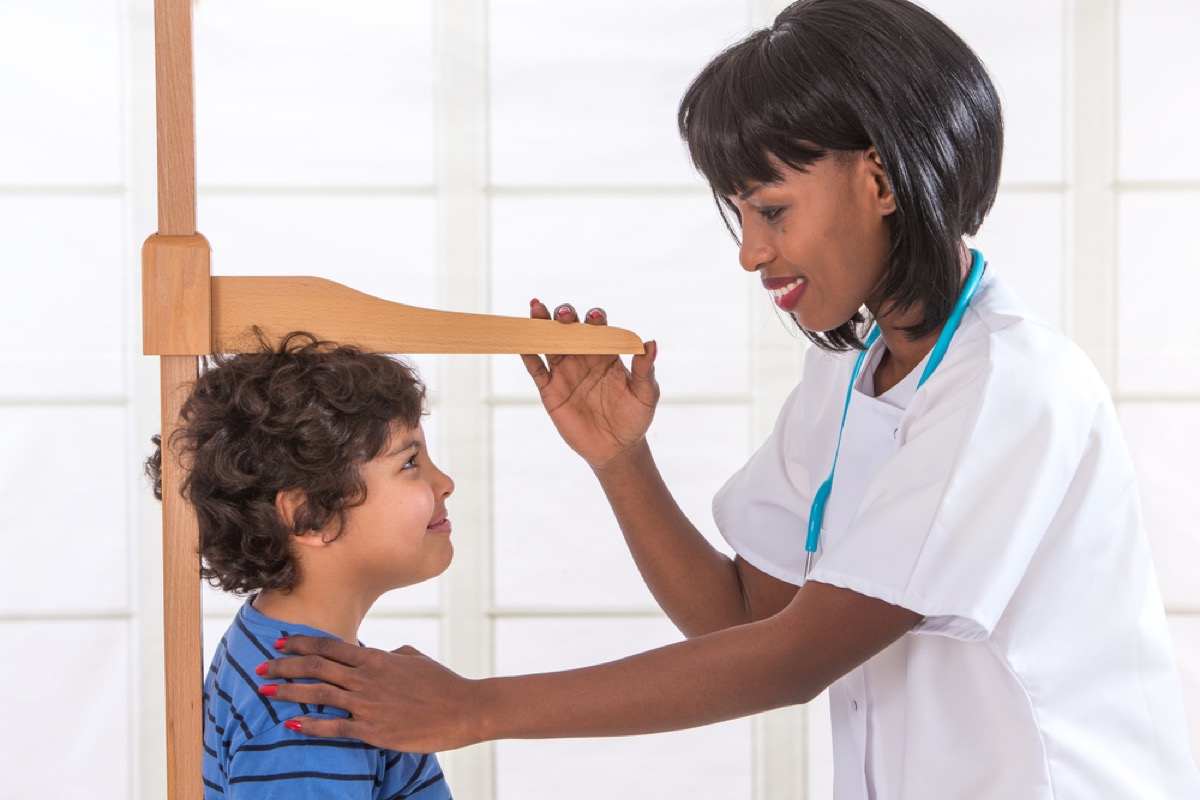
Just because your kid was a big baby doesn’t mean their growth will continue on that curve forever—and there’s likely nothing wrong with that.
“Listen to your pediatrician. I see kids falling massively off the growth chart, and that does concern me, but if they’re within a few percentile—like five percent—I don’t worry,” says Posner. “When I see two parents who are small with a baby who’s in the 90th percentile for height, the likelihood is that they’re not going to continue at the 90th percentile, because their genetics don’t indicate it.”
25
Don’t assume your kid is allergic to everything.
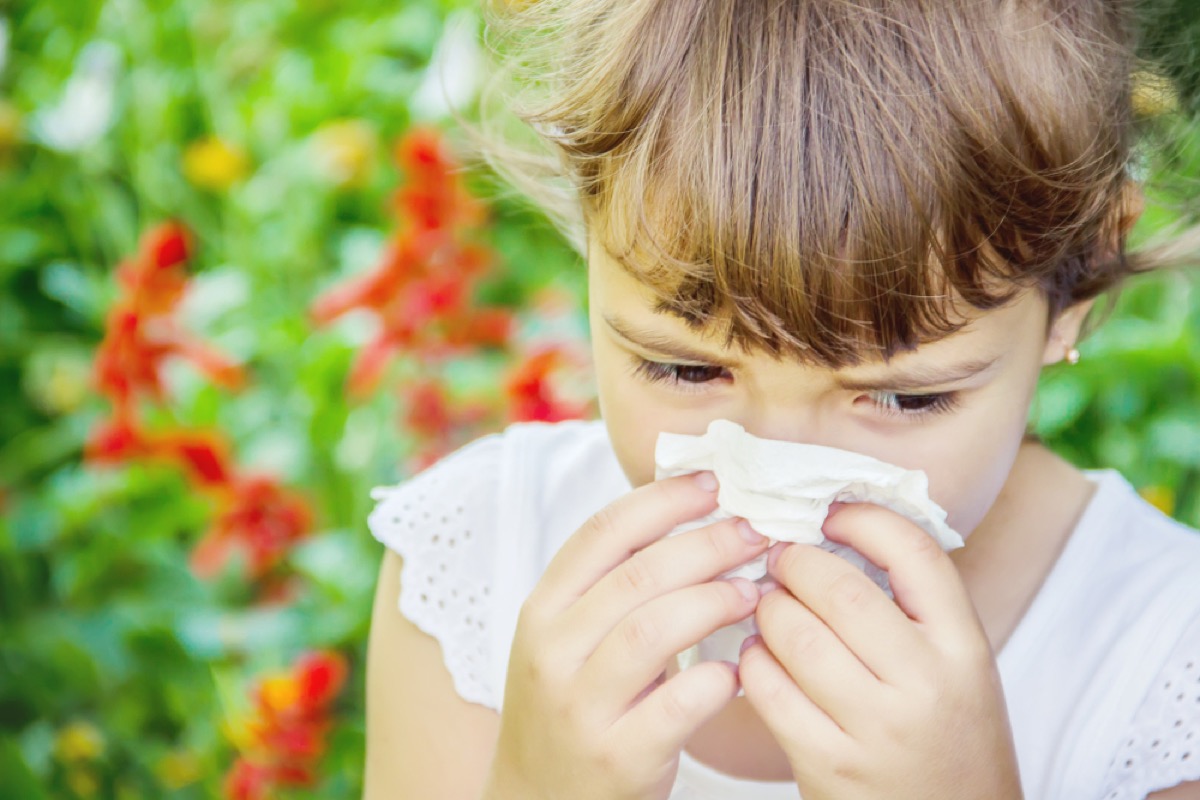
Don’t solely listen to the internet when it comes to your kid’s allergies. Before you decide that non-stop crying is the result of being allergic to everything from gluten to detergent to diapers, get a medical perspective on the issue—and not one passed on second-hand through parenting groups.
“People come to me and say, ‘My mom told me I need to cut all milk and this and that out of my diet because my kid is fussy’—no, that’s not a good reason to do so,” says Posner. When in doubt, talk to your pediatrician. Before completely overhauling your life and routine, see if an elimination diet or allergy panel is warranted.
26
Provide two choices to avoid arguments with your little ones.

Want to give your kid some autonomy, but find yourself exhausted by the endless battles over what to wear, what to eat, and what to do? Stick to two choices instead.
“Kids like choices, but giving them too many is not good,” says Posner. “If you can give them two, at least they feel like they have a say in the matter. But you’re controlling what those two choices are, versus giving them too many choices—or just giving in all the time.”
27
Always leave the house with a backup outfit for each kid.
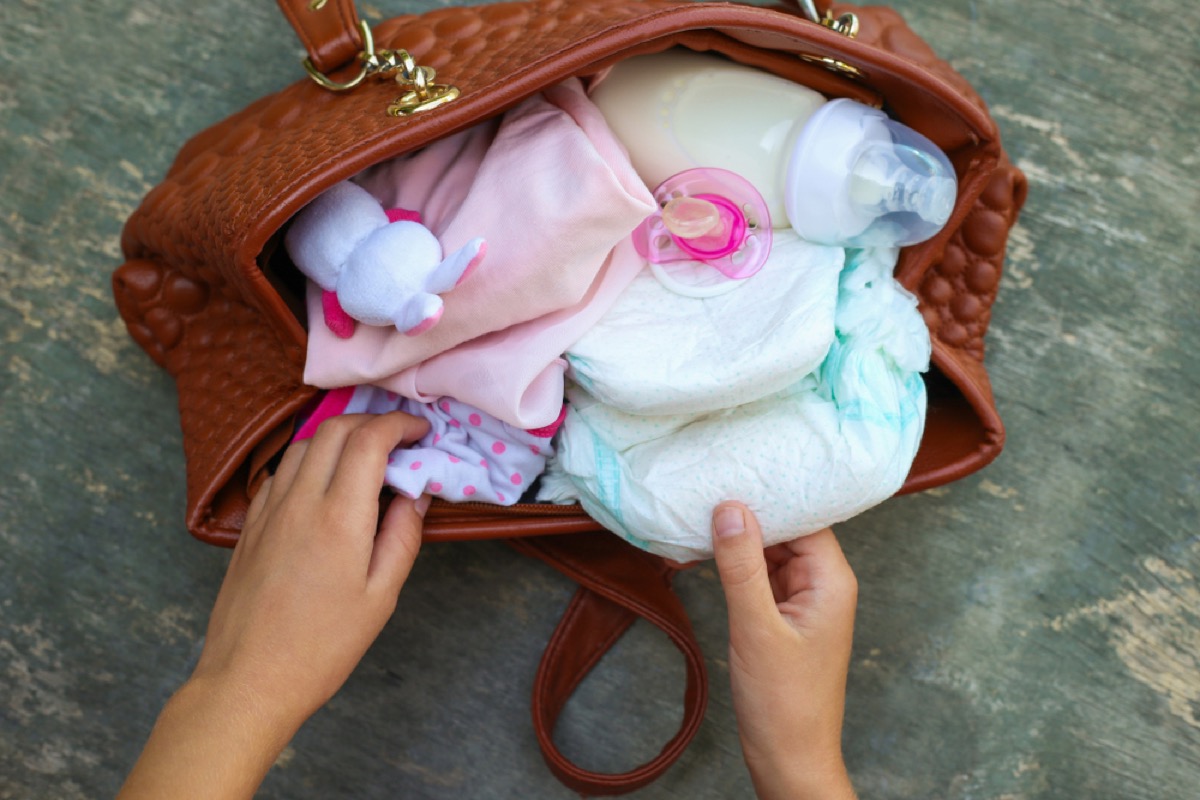
The day you finally think that your kid is done with diaper blowouts, getting carsick, or bloody noses will be the day those problems return with a vengeance. If you’re heading out of the house for more than 15 minutes, always bring an extra outfit for each kid you have with you, and leave a few spare sets in your car for the times you forget.
28
Don’t sweat it if your kid suddenly decides they only eat one thing.

“All kids go through phases where they’re picky and they don’t want to eat certain things or they only want to eat certain things,” says Posner. While she admits that children with autism and sensory processing disorders are often an exception to the rule, most neurotypical children will eventually start eating more diverse foods if you don’t bend to their whims.
“Kids will go through phases where all they eat is peanut butter and jelly or all they eat is hot dogs, but most kids don’t starve themselves. It might take a few days, but if you don’t give in to them, they will start eating and trying more things.”
29
Get a support system in place early.

You might think that calling the babysitter the day before date night will work out just fine, but in many cases, finding dependable childcare is easier said than done. To help mitigate any babysitting emergencies, start your childcare search long before you actually need someone to watch your kids—or even better, before they even arrive.
“You want to have a support system because most parents do hit a point of exhaustion and you need a tag team,” says Posner.
30
Prioritize your own happiness.

While people often see parenting as a selfless endeavor, moms who neglect their own needs might just find themselves burning out—or, at the very least, not being the kind and patient parent they want to be.
“Parents need to ensure that they make time for each other alone as well as with their children,” says Kulaga. “Work will always be there, [but] your spouse and children might not for various reasons. In the end, your job can replace you any day. You are not replaceable to your child.” And when you’re ready to level up your parenting game, start with these 20 Easy Ways to Be a (Much) Better Mother.
To discover more amazing secrets about living your best life, click here to follow us on Instagram!